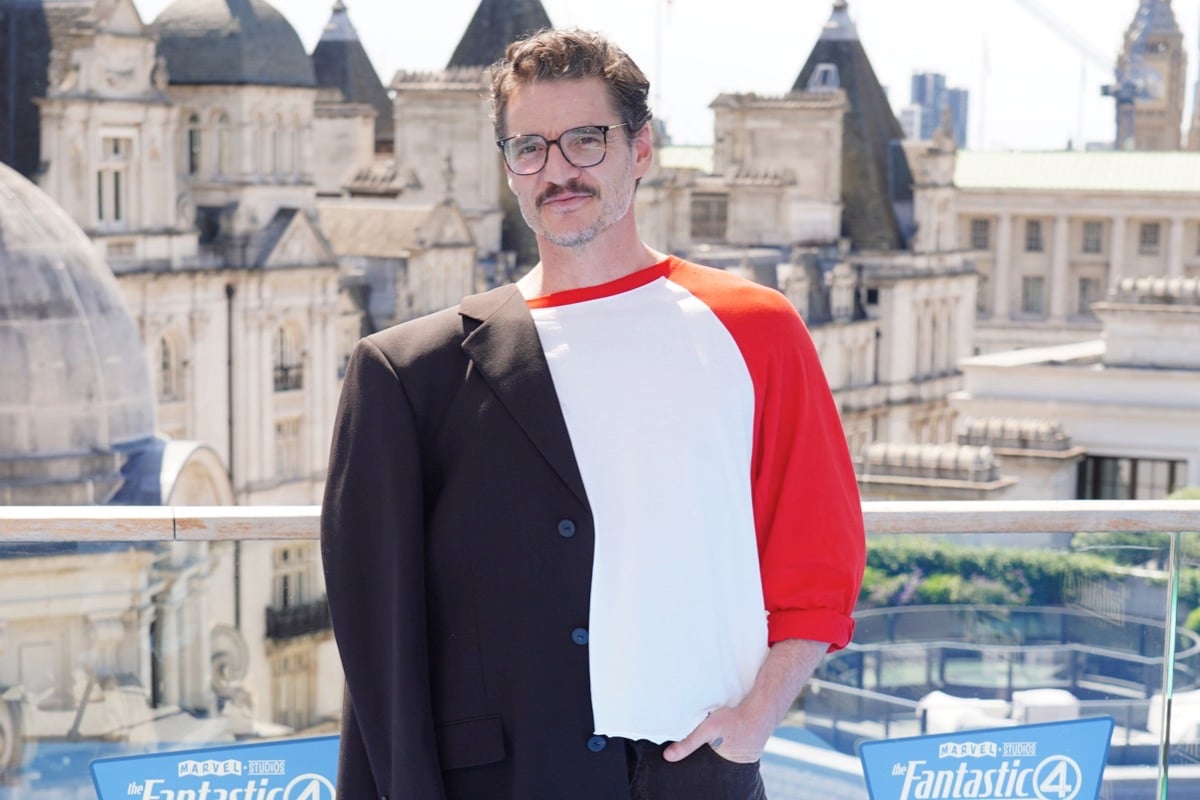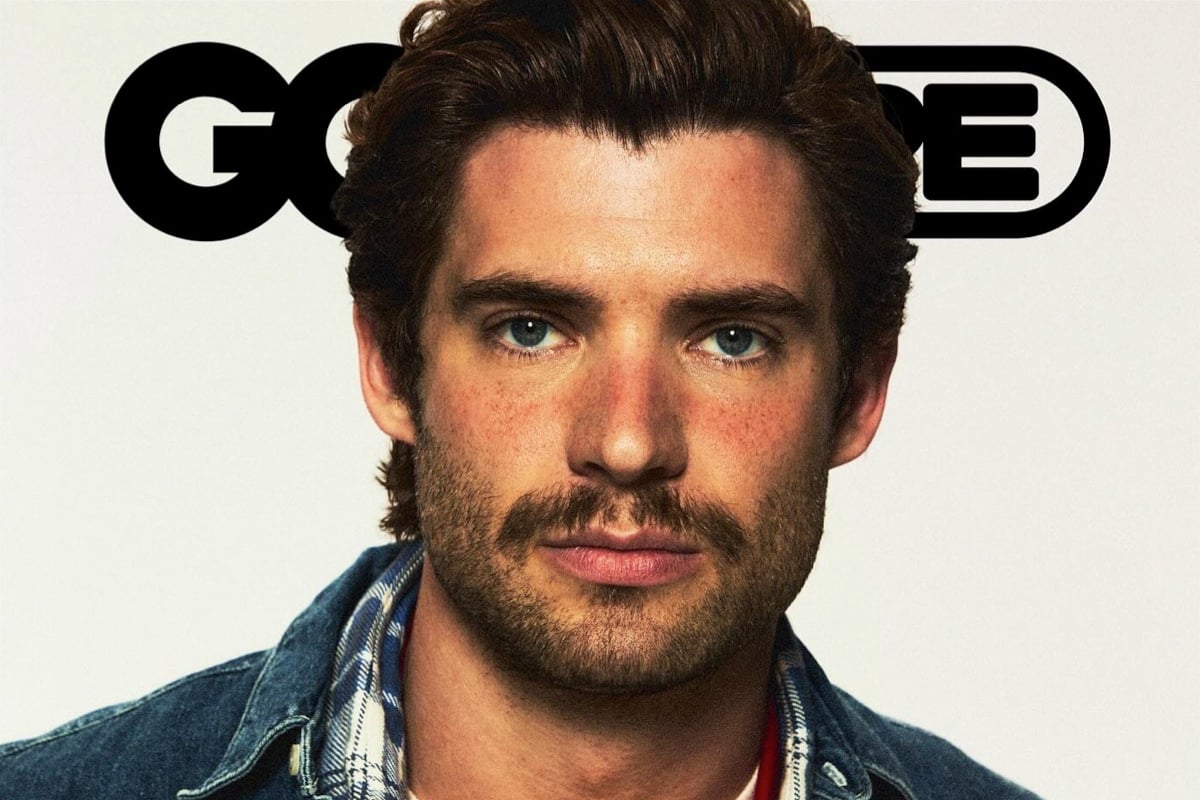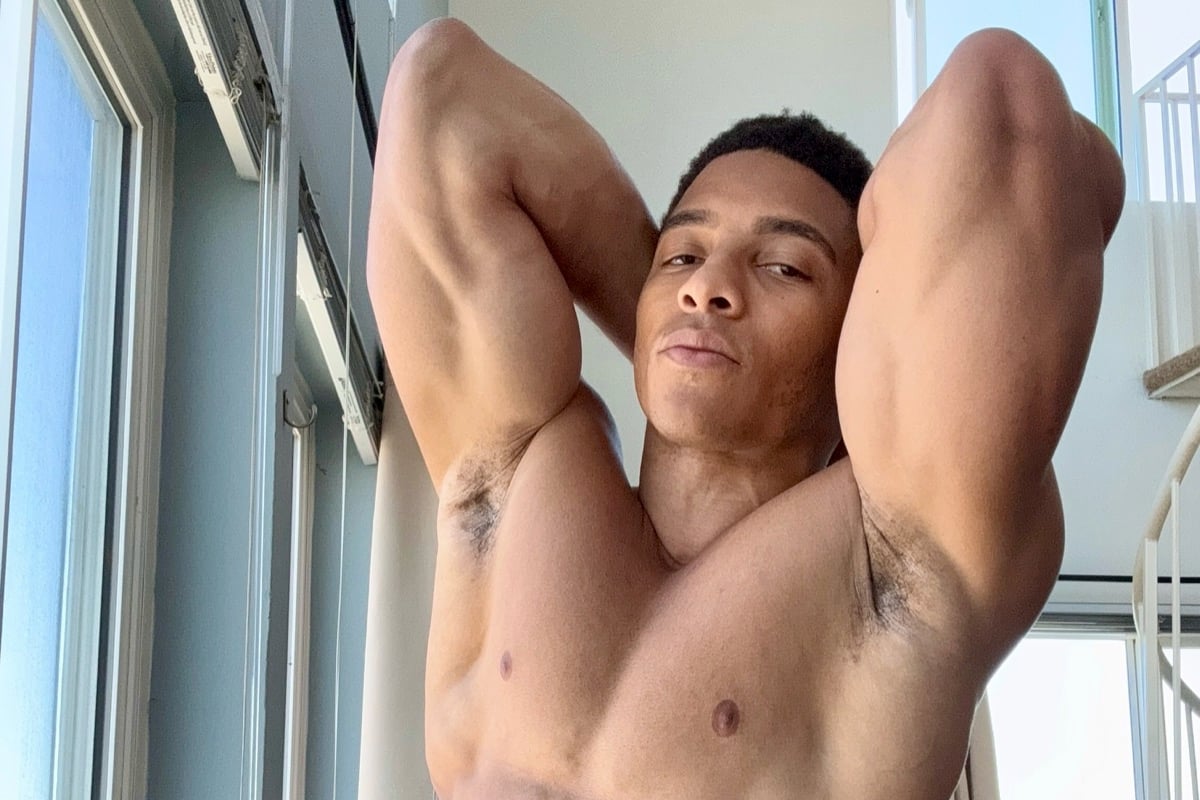As a kid, Jason Klamm memorized the movie Wayne’s World from a $5.99 McDonald’s promotional VHS, and his love of comedy started then. Now Jason, an author, voice actor, comedian, and podcaster, has taken his passion for a specific time in comedy, the 1990s, and has written a love letter in book form to shows like In Living Color, Kids in the Hall, The State, and lots more.
Jason’s book We’re Not Worthy: From In Living Color to Mr. Show, How ‘90s Sketch TV Changed the Face of Comedy covers the evolution of sketch comedy from shows like Laugh-In and The Carol Burnett Show and improv groups like Second City to a wide variety of 90s classics like The Tracey Ullman Show, The Ben Stiller Show and Mr. Show, among many others. The book features an introduction from The State’s David Wain and interviews with comedy luminaries like Carol Burnett, Bob Odenkirk, and Brad Sherwood, just to name a few.
We had a chance to chat with Jason about his book, the state of sketch comedy today and in the future, the best era of Saturday Night Live, and more in our exclusive interview.
What inspired you to write this book?
It’s interesting because I’ve been doing sketch comedy most of my life – sketch and improv, really, because early stuff I thought was sketch was just my friends and I learning improv and that was around the early 90s, and it was sort of inevitable, I think, that if I was going to write about sketch comedy, it’d be the early 90s.
If I was going to write about comedy history, which is something I’ve been trying to do for a long time, it was either going to be comedy records based on my old podcast, or it was going to be sketch comedy. And then we sort of whittled it down to like, okay, you can’t just write about sketch comedy – unless you’re Keegan Michael Key, of course – can you nail it down to something you particularly love? And then we discovered TV sketch and I just love it. It’s my favorite thing.
When did you get bitten by the comedy bug?
I was eight and realized my mom was laughing really hard at the sitcom Roseanne. And I was like, I want to make people laugh. That sounds fun. And so, when I was eight, I wrote my first joke – which will never appear in print or never be repeated because it’s terrible. I didn’t realize how inappropriate it was even though I was eight. But, you know, it was a well-formatted joke. And, since then, I’ve been studying comedy to see what works about comedy, what makes sense, and then it became sort of instinct within a few years of watching stuff that I loved.
Who inspired you when you were starting out?
The first thing that got me into sketch…like really making sketch, even though I’d seen a ton of sketch shows, like In Living Color…The State is probably my favorite of the nineties TV sketch shows.
The thing that made me really want to make do sketch was Cheech and Chong. My best friend and I both loved Cheech and Chong and would repeat the sketches. Neither of us did drugs, neither of us had any idea what half the references were but we would like reenact Cheech and Chong sketches in this old busted out car in my best friend Dan’s backyard, and at some point, we were like, oh, this is how you make comedy, this is what sketch is. It didn’t even occur to me we would want to do it on TV yet or do it with a video camera. We just were like, yeah, let’s record ourselves on audio tape. And we became friends over Weird Al and Cheech and Chong, but Cheech and Chong was the thing that stuck because neither of us are particularly musical.
You did extensive research for this book. What was the most surprising thing you discovered while you were writing it?
I mean, I shouldn’t have been surprised that, you know, everybody, even the richest and most powerful among them came from somewhere. You know, there’s always this small story that just illustrated where somebody was either at their lowest or least successful.
I harp on this a lot, but I just really particularly love the Adam McKay story of him doing a Nine Lives campaign and that was the thing that saved his career. It saved Matt Besser’s career and in turn basically kept him going long enough so that he could be the head writer of SNL within a year of working there.
And that’s all down to ImprovOlympic, which it’s interesting because when most people think of ImprovOlympic, they think of Del Close, they think of The Harold. Charna Halpern has sort of, not entirely silently, but pretty quietly sat by and let Del take all the credit for how important a theater that is, and I think the thing that surprised me the most was realizing she’s a massive part of it, and she was the one who had her head on straight the whole time, and she doesn’t get all the credit.
If you had the opportunity to write more in depth about one or two of the shows you covered in the book, what would they be?
I’ve been thinking about this because I’m going to do a second edition. I think Exit 57 deserves its own chapter, even though I don’t particularly care for the show, and its original pilot is awful. It’s really bad but I think that deserves it – and also All That, which was not a show I grew up on…but for kids five years younger than me, All That was huge. That deserved its own chapter, and I was even disappointed that it wasn’t in there. Both of those deserve their own chapter, and then one show that I didn’t even mention, which is crazy to me, it was hugely influential on me, is called Sifl and Olly. It was a puppet show on MTV and I adore it to this day, it’s one of my favorite shows of all time. I know one of the guys from Sifl and Olly and I didn’t get that interview in time. It didn’t get to go in the book, which makes me a little sad. So, I’m hoping by the next edition that one can also at least get a chunk of a chapter.
Who was your favorite interview subject for the book?
Ooh, boy, that’s hard. Carol Burnett…that’s the luckiest I got through that whole thing, and it makes no sense. I was 30 interviews in, I hadn’t interviewed anybody that she was likely to have even heard of yet, but she said yes anyway, generously. And I think she’s the reason I got all the other interviews. We only had 20 minutes, but it was the best 20 minutes of my whole life. Bob Odenkirk was the one I was waiting for and waiting for and waiting for because I had a feeling and it turned out to that he’s as obsessive over sketch and picking apart comedy as I am.
I could have written a very boring book that would have just been the two of us picking apart sketches because he’s got the same analytical mind as I do. Some people think that just sort of overly dissecting comedy ruins it for some people. For me, and fortunately for somebody like Bob, it actually makes it more interesting but that’s not for everybody. That was a phenomenal hour. I could have done it for six.
You’ve mentioned you didn’t want to cover Saturday Night Live because it’s been done before but what was your favorite era of SNL?
It’s a mishmash because I’ve rewritten my own history because I thought for a long time I was a big fan of the Phil Hartman years, but I think I knew of him more from The Simpsons and News Radio. I am obsessed with him because of that show. What’s honestly one of my favorite eras is probably the era with Cecily Strong on it. I think she will go down in history as one of the greatest performers on the, in the history of that entire show.
Ah, but what’s an era? I mean, maybe that era just before Phil Hartman leaves, when I must’ve been watching, I think I must’ve been watching it because Chris Farley was still there, and Jan Hooks, I believe, should have still been on the show. That’s a really good, strong, weird era. If I have to pick one, I’ll pick that one, but that’s, that’s how it always is. I think it’s like when you’re 12, that’s usually your favorite era of SNL. So it sounds a little trite, but that’s probably it.
That’s mine too. I was in college then.
Actually that’s a good point too, though college for me was when Tina Fey started and the show got more political than I knew it was ever actually properly political before then and that’s when I was becoming politically aware, so I got all the jokes. That is another era I really did dig, even if I didn’t like a ton of the actors on the show. And then later I was like, these people are brilliant. What was I complaining about?
Do you think that we could ever get back to such a wide array of sketch comedy shows like we had in the 90s or did YouTube and TikTok ruin it?
I actually think stuff like TikTok and YouTube are going to save sketch as a visual medium because proper like TV shows are going away. Nobody’s buying sketch shows – I won’t say nobody, that’s an exaggeration, but you don’t have nearly as many sketch shows now as you did in the 90s and that’s because you have fewer eyes on everything and reality TV is so much cheaper to make. At the same time, we’re getting all this free content – I hate the word content, but there’s no better word for it – right this second on TikTok and YouTube.
It’s hard to say. I think there is that potential, but you have to find the right people, or you have to find the right sort of pre-made group. And not to throw any shade, but to avoid a little nepotism, if you’re going to give them their own TV show or their own slot on a late-night sketch show, like really, really build it around a unified voice, like some of the best sketches of the nineties where I think it could be done. I don’t know if TV industry people have any actual interest in that. I can’t tell. It’s hard to say.
What do you think, if you would define, like, the future of sketch comedy, like, what would you envision that to be?
I mean, the ideal for me because I’m, I guess, officially a fogey now – because I just wrote about my childhood and acted as though it was the most important ten years in the world – I would ideally love to see it go back to just a huge slate of sketch shows on TV, but more for the variety. Ideally, I’d be one of them, you know. I’ve pitched so many sketch pilots. I would absolutely kill to do it.
But the future is probably in, I won’t say the ideal, but the future is probably if sketch shows continue, it’s we grab a TikTok star, we grab a YouTuber and we build a show around them rather than find a group because there’s not as many groups. You don’t need them, that’s the way people look at it. So, the future is probably grabbing single stars, creating a whole show around them. The ideal is doing the same thing but doing the old-fashioned way and hunting down groups that already have a dynamic, that already have a bunch of really good material together, and don’t just turn them into The Monkees of comedy, which has gotten a mixed bag of results. I feel like the best shows in the 90s were all the ones were already a group, like Kids in the Hall, The State, etc.
What’s next for you?
I am pitching and developing a bunch of potential books that whichever one somebody wants to pay me for will happen next. One is a biography of a comedian, sort of a mini memoir because it’s a mixed thing. His name is Dick Davy. He’s no longer with us, but I’ve got an album coming out of his uncovered material, stuff that nobody knew existed for 50 years. That’s actually happening.
And then I’ve written a bunch of comedic satirical fiction. That’s the stuff that I self-publish and will always self-publish because I don’t anticipate an agent caring about that. I know I’ve got a couple things on the horizon but mostly books. I’m mostly trying to figure out what the next book is or complete my album.
Get Jason’s book We’re Not Worthy: From In Living Color to Mr. Show, How ‘90s Sketch TV Changed the Face of Comedy at Amazon or wherever you get your books.
Join the SL Community
Have an opinion on what you just read? Sign up to be a part of the Socialite Life community in order to post a comment, bookmark your favorite articles, topics, and contributors.







